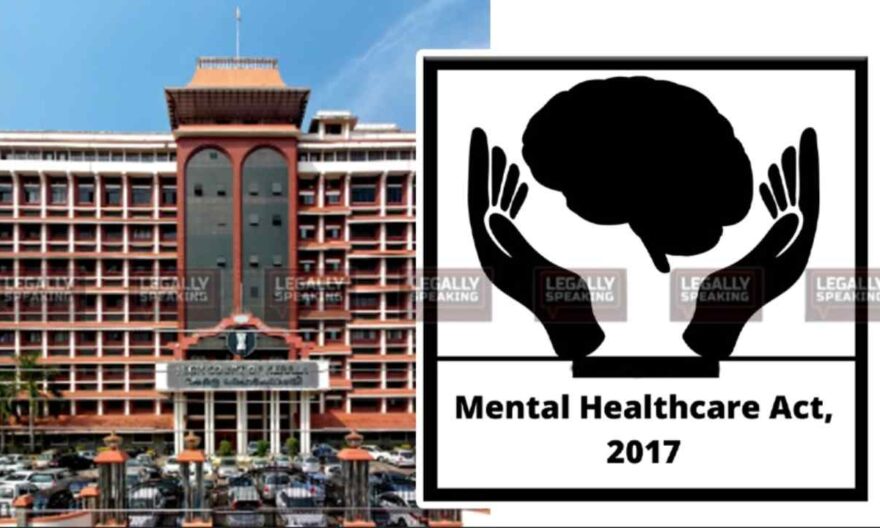
The Kerala High Court recently directed the State Police Chief, urging the proper training of Police Officers in the provisions of the Mental Healthcare Act, 2017.
A single bench of Justice K Babu considered the suggestion put forth by the Amicus Curiae, emphasizing the importance of sensitively handling cases involving individuals with mental illness. The court directed the competent authorities to ensure that Police Officers are well-versed in the Mental Healthcare Act through appropriate training programs.
“The State Police Chief will ensure that the Police Officers in all the Police Stations in the State are sensitized to the relevant provisions of the Mental Healthcare Act, 2017 so as to ensure proper, prompt and effective compliance with the provisions, which would pave the way for ameliorating the grievances of the mentally ill persons,” the bench directed.
The single-judge was considering a challenge filed by an accused who had submitted an application under Section 328 of the Criminal Procedure Code (Cr.P.C.), asserting that his mental illness rendered him incapable of presenting a defense. The Special Court, however, ruled that the accused was of sound mind and dismissed the plea. Dissatisfied with this decision, the petitioner approached the High Court to challenge the order. The petitioner had been charged with offenses under Section 377 of the Indian Penal Code (IPC) and Sections 9(m) & 9(n) read with Section 10 of the Protection of Children from Sexual Offences (POCSO) Act. In the application filed under Section 328 of the Cr.P.C., the petitioner claimed to suffer from Bipolar Disorder, depression, and suicidal tendencies. Furthermore, the petitioner stated that they were undergoing treatment for demyelination and provided medical records in support of their claims. However, the Special Judge concluded that the petitioner had failed to establish their unsoundness of mind and determined that no inquiry under Section 328 of the Cr.P.C. was necessary. The petitioner’s counsel argued that the Court did not properly consider the medical records presented as evidence of the petitioner’s mental illness. The Amicus Curiae appointed in the case contended that, as per Section 105 of the Mental Healthcare Act, 2017, it was mandatory for the Court to refer the matter for scrutiny by the appropriate board. Based on the board’s opinion, the Court should have determined whether the trial could proceed or not. Agreeing with the arguments put forth by the Amicus Curiae, the Court held that the Special Judge had failed to comply with the requirements stipulated in Section 105 of the Mental Healthcare Act and the provisions of Sections 328 and 329 of the Cr.P.C.
“Under Sections 328 and 329 of Cr.P.C. the Sessions judge had the onerous responsibility to hold an inquiry regarding the soundness of the accused’s mind and his consequent incapacity to make his defence. Under Section 105 of the Mental Healthcare Act, if any proof of mental illness is produced and is challenged by the other side, the Court shall refer the same for further scrutiny to the Board concerned, and the Board shall, after examination of the person alleged to have a mental illness, either by itself or through a committee of experts, submit its opinion to the Court. The opinion of the Board referred to in Section 105 of the Mental Healthcare Act shall form the foundation of the decision of the Court on the question whether the trial in respect of the person could be proceeded with or not,” the order reads.
In light of the above, the bench issued a directive to the trial judge, instructing them to reevaluate the case and proceed in accordance with the prescribed legal procedure.




